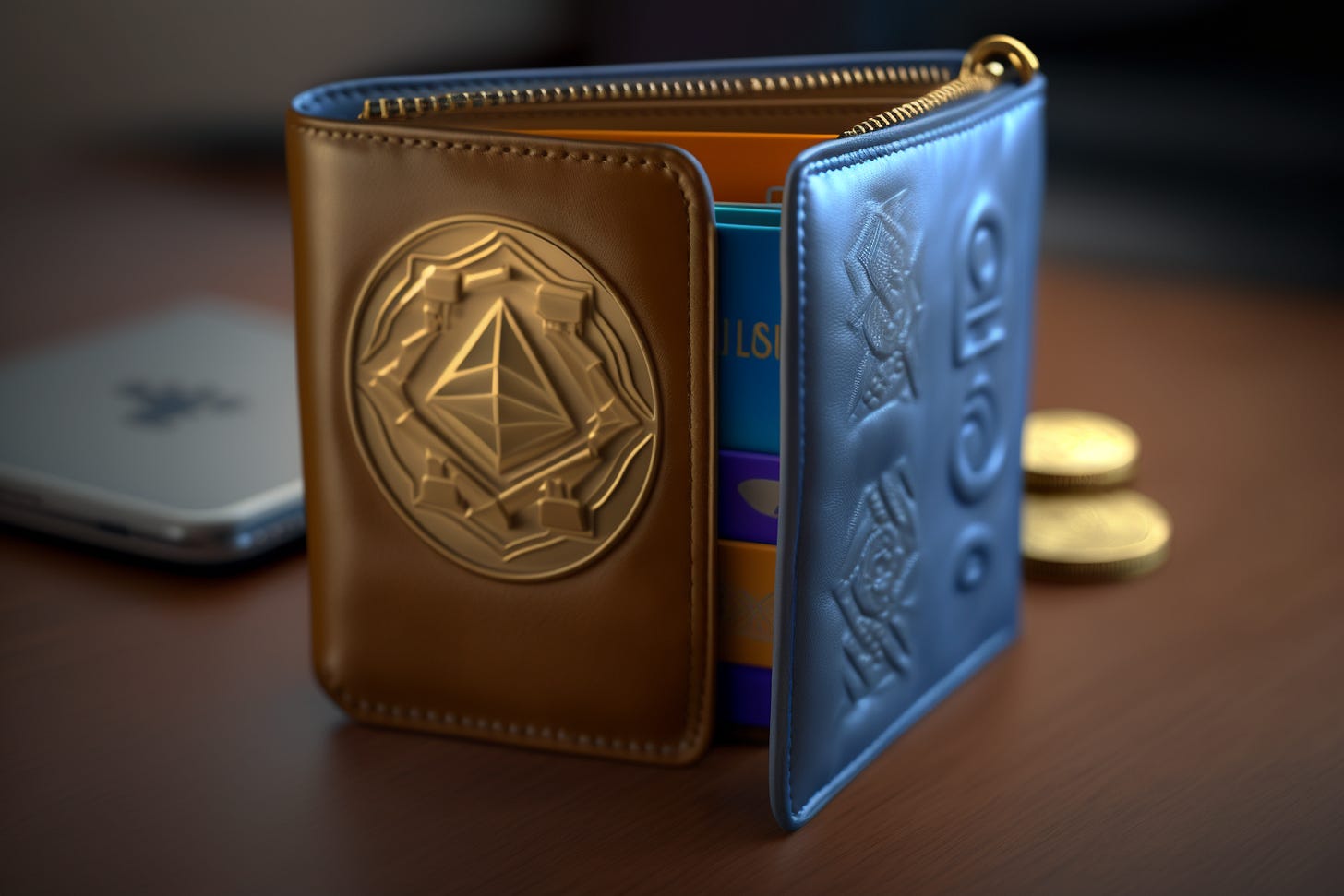What is a Crypto Wallet
Understanding the Basics of Crypto Wallets: Types, Security, and Usage
A crypto wallet is a digital asset that allows users to store, send and receive cryptocurrency coins or tokens. It can be thought of as the equivalent of a physical bank account for storing cryptocurrencies such as Bitcoin, Ethereum, Ripple and Litecoin. Crypto wallets are typically available on desktop versions (web-based) or mobile platforms with different features depending on the provider you choose.
Crypto wallets come in various forms including hardware (cold storage), paper (offline), web applications/online services, smartphone apps and even special debit cards linked to your specific wallet address. Each type of wallet will offer additional security measures along with varying levels of access control based upon user-defined preferences set during registration process like two factor authentication codes delivered via SMS text message etc.
The main function of any crypto wallet is to keep track of transactions so they are stored securely while also allowing users to interact with other networks within blockchain technology such as smart contracts which require certain prerequisites before being triggered by an action taken from outside sources like exchanges/trading platforms etc.. Wallets also provide transparency over how funds are allocated between different accounts making it easier to manage multiple portfolios all under one roof if desired!
Typically each public key associated with its respective private key needs to be kept secret at all times. Some modern wallets however, use biometric identification methods to help protect those credentials, further enhancing their overall security posture against malicious actors looking to steal someone’s hard-earned money without proper authorization granted from the owner themselves. This could include facial recognition, scanning fingerprints, thumbprints, eye scans, and analyzing voice signatures among others depending on which platform was chosen when setting up the personal vault system where pertinent details remain safely locked behind cryptographic locks until release time comes.
When using any kind of crypto wallet it is essential that users do their due diligence before deciding on one type over another; not all cryptos may be supported by certain types while others might have compatibility issues with certain operating systems. Additionally, some crypto wallet providers offer additional services such as multi-signature authorization protection measures or rewards programs in exchange for loyalty – each feature has unique pros and cons associated with them.
The most frequent question asked is, “can I store any cryptocurrency in the same Crypto Wallet?” The short answer is yes – you can indeed store multiple cryptocurrencies within a single wallet if they happen to share compatible technology settings (i.e., both use Ethereum protocol). This makes sense since having two separate accounts would require double the transaction fees when sending funds between those two balances, plus more time spent dealing with passwords/usernames across platforms etc.. However, this does not necessarily mean that every provider offers support for all coins available out there, so please check individual product page details beforehand!
Some examples include: Ledger Nano X supports Bitcoin (BTC), Litecoin (LTC), Ripple (XRP) and Ethereum Classic (ETC). Trezor Model T also allows storage of ERC20 tokens; MyEtherWallet interfaces directly into popular exchanges like Coinbase Pro, making transfers fast and easy without worries about compatibility between networks etc…
Ultimately though, no matter what type of crypto wallet you choose, make sure it's secure enough based off your usage habits i.e. low risk portfolio investors should opt towards simpler solutions such as desktop applications, whereas experienced traders seeking improved security features will benefit from hardware options like ledger nano x series devices where private keys never leave the device itself, thus providing the highest security levels possible against potential threats.
As the cryptocurrency market continues to expand, more and more people are investing in crypto assets. Unfortunately, many investors do not realize that they need to take extra measures when taking part in this type of investment. One such measure is securing your crypto wallet. If you lose or misplace your wallet, it can be difficult (or impossible) for you to recover any funds stored within it without being able to provide proof of ownership over those wallets – meaning there’s no way for anyone else (including yourself) to access them unless you have the necessary credentials.
Before we go into what happens if one loses their crypto wallet let us first understand how these wallets work: A Bitcoin address is simply an alphanumeric string that represents a destination on the blockchain where BTC tokens may be sent from one person/organization/exchange etc., while Private Key refers exactly as its name implies; it's used by owners of an address so as protect their bitcoins against unauthorized access by another party other than themselves via use of complex cryptographic techniques usually known only by owner(s). All transactions made using addresses linked with particular Private Keys must first pass through sufficient verification before they can proceed further onto a public ledger known as “blockchain”, thus preventing double-spending fraud attempts. This ensures that each transaction takes place between two parties who both possess validly obtained sets corresponding information about involved entities like sender and recipient details along with amount transferred etc..
So, now coming back to the question posed earlier: What happens when I lose my Crypto Wallet? The answer largely depends upon whether the individual had taken precautionary steps beforehand eg. backing up relevant data either offline in paper copies containing recovery phrases consisting of 12-24 words randomly generated during the setup process OR saving an encrypted version somewhere safe online. The best recommendation here is to be well prepared ahead of time in the event that the worst case scenario does happen. If you’re not prepared and lose your access to your crypto wallet, it can be nearly impossible to get it back.




